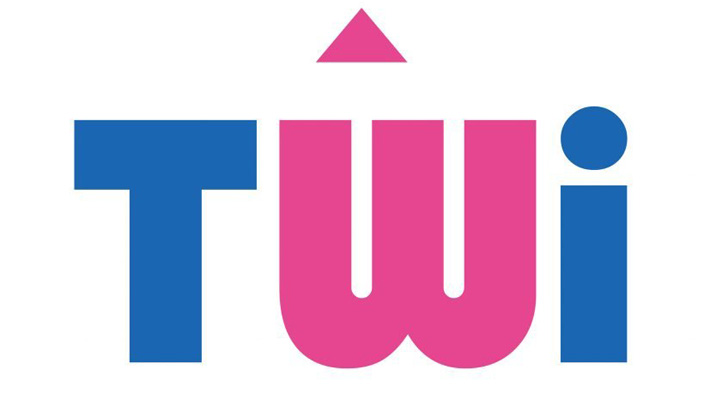We recently learned that academic institutions in the UK are no longer providing third-level qualifications in technical communication. Several techcomm courses that had existed at various universities have been shut down. The topic of techcomm education was already one in which we were keenly interested and actively involved. This information seemed to contradict our perception that there is a healthy demand for qualified technical communicators, across various sectors, by employers and client companies. We decided to dig deeper to find out more.
Decline of Third Level Techcomm Education in the UK
The most recently discontinued techcomm course in the UK was an MA in Technical Communication provided by Sheffield Hallam University. At this years’ Technical Communication UK (TCUK) conference we spoke to David Farbey, the lead on Professional Development and Recognition at the Institute of Scientific and Technical Communicators (ISTC). David, who previously lectured on the Sheffield Hallam course, explained that the official reason cited for its closure was ‘lack of demand’, although he believes there were other contributory factors.
David outlined the other techcomm courses across the UK that have met a similar fate:
‘A BA in Communication Design at Coventry University closed in 2008. Before that, an MSc in Scientific and Technical Communication at London South Bank University closed. There also used to be an MA in Professional Communication at London Metropolitan University, and Portsmouth University offered an MA course, both of which have been withdrawn.’
This litany of closures illustrates the decline of techcomm education in the UK.
To put this in context, our recent survey on techcomm education found that a high proportion of technical communicators do not hold academic qualifications relating to their profession. In fact, more than two thirds of respondents had no formal techcomm qualification. It is worth noting, however, that most were highly experienced. This reflects the trend observed elsewhere that the more years’ of professional experience technical communicators have, the less likely they are to hold qualifications.
In the absence of dedicated academic courses in the UK, techcomm is only taught through modules (or units) offered as part of certain undergraduate or postgraduate programmes in related fields. Institutions that offer such modules include Imperial College London, Norwich University of the Arts, Middlesex University London, The Open University, and University of Portsmouth. There are also a variety of commercial training programmes available, a handful of which are accredited by the ISTC. In an effort to revive techcomm education in the UK, the ISTC is in the process of identifying institutions with courses in related topics, to explore whether techcomm can be built into existing programmes.
Currently, the closest stand-alone academic qualifications for UK applicants are those provided by the University of Limerick (UL) in Ireland. The university currently offers an MA in Technical Communication and E-Learning, available in both online and on-campus modes, and a Graduate Certificate in Technical Writing by distance learning.
The demand for these courses appears healthy and it seems that graduates are sought after by employers. UL has compiled data on graduate employment that suggests the outcomes for graduates of the MA in Technical Communication and E-Learning are very positive. In 2013, 100% of graduates were engaged in employment or further studies, with 64% employed in Ireland. (Note that these figures are based on a small sample of graduates.) This lends support to our anecdotal impressions regarding the market demand for qualified technical communicators.
Unfortunately, very little empirical evidence is available on the techcomm employment market. However, an EU-funded educational initiative called TecCOMFrame is being developed by the German-based professional association, tekom, based on the premise that the current provision of techcomm education is insufficient. The website of the TecCOMFrame project states:
‘Throughout Europe, we have identified a gap between the number of students graduating in technical communication and the number of open jobs in this field … the demand for formally trained technical writers is high.’
Professional Development and the Development of the Profession
So does the UK techcomm employment market differ from the European norm? This seems unlikely. There are multiple factors at play but it is difficult to get a holistic understanding due to the lack of research on the profession. Ironically, a stronger techcomm academic sector is needed to remedy this knowledge deficit.
Alison Peck, President of the ISTC, pointed out that the unavailability of qualifications can have the effect of dampening demand, leading to a downward spiral. She highlighted some key reasons why academic education is important to the profession as a whole:
‘If we want to be taken seriously as a profession in our own right, we need some way of becoming qualified in our field, of passing on both the theoretical and practical knowledge we already have and of undertaking formal research to move forward.’
People enter techcomm from a wide array of backgrounds and this diversity can be seen as a very valuable asset – as highlighted by several speakers at this year’s TCUK conference. However, insufficient educational provision can make it difficult to enter the profession. Furthermore, it may negatively affect those working in techcomm seeking to improve the visibility of their work or avoid career stagnation.

Image: Career Mind-Map on Chalk Board by Flazingo (https://www.flazingo.com/creativecommons) CC BY 2.0
Patrice Fanning, CEO of TWi, agrees that there are compelling reasons to promote and develop techcomm education, from both industry and practitioner perspectives:
‘Our company employs several graduates of the UL techcomm courses and is currently sponsoring three employees in undertaking qualifications. We believe that the availability of quality techcomm programmes is an important element in facilitating the professional development of technical communicators. We invest time and energy in techcomm education because it is so relevant and beneficial to us and to our wider professional community.’
What we have learned about the current situation of techcomm education has reinforced our enthusiasm for contributing to the development of a new programme in a local academic institution. We will continue to draw attention to and explore the related issues with our colleagues in the techcomm community.
We would like to hear from all of you – techcomm practitioners, students, graduates, and academics, as well as employers and clients who purchase technical communications services. Do you think the provision of academic techcomm education through modules rather than stand-alone courses is sufficient? Are academic qualifications desirable or are technical training courses preferable? Do you think the limited availability of academic education and qualifications affects the status of techcomm as a profession? Your insights on these issues are most welcome!











